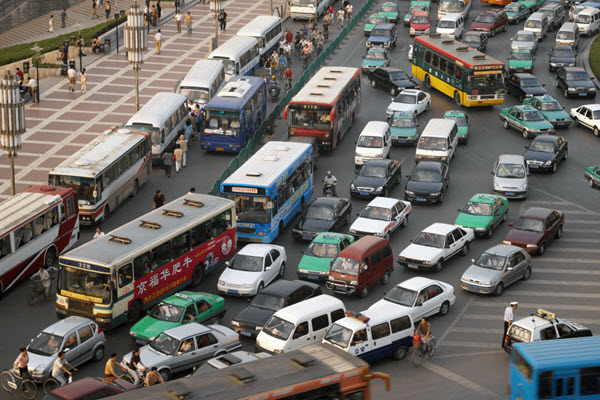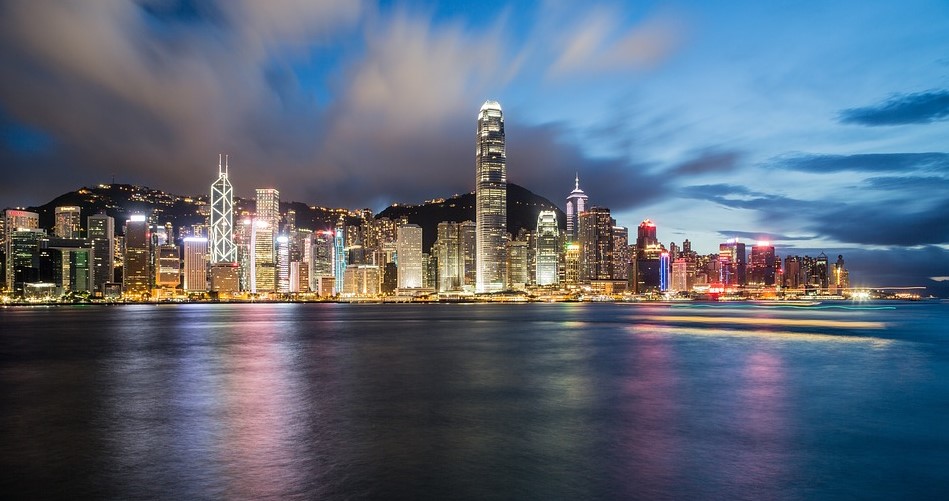Is It Safe to Travel to China?
China is one of four ancient civilizations that date back more than 3,000 years. Even the language itself supersedes others both in uniqueness and complexity. It’s one of those places you need to visit at least once in your lifetime to get the full breadth of its rich, diverse heritage and remarkable natural wonders.
As spectacular as the country may be, China is not immune to crime or extreme security threats. There’s also the hard-to-ignore fact that it is a communist country. This means you don’t get to enjoy the same freedoms and liberties you’re used to at home.
If you’re thinking of taking a trip to the country, you’re probably wondering: Is it safe to travel to China? Here’s everything you need to know.
Is China Safe to Visit?
According to the China travel advisory information listed on the US Department of State (DOS) website, the country poses a Level 3 risk, though depending on who you are and why you’re traveling there, that threat level can easily be as high as Level 4. Here’s what the different levels mean:
US Department of State Travel Advisory Levels
| LEVEL 1 - Exercise normal precautions | This represents the lowest level of security and safety risk. |
| LEVEL 2 - Exercise increased caution | This level requires travelers to be aware of heightened security and safety risks in those particular territories. |
| LEVEL 3 - Reconsider travel | This level represents serious security and safety risks; the US Department of State urges travelers to reconsider travel to areas classified as such. |
| LEVEL 4 - Do not travel | This level represents the highest risk level; individuals traveling to these countries face higher-than-average, life-threatening risks to their security and safety. |
In this case, the DOS urges American citizens to reconsider travel to China due to what it terms as the “arbitrary enforcement of local laws.” As we mentioned before, the People’s Republic of China is a communist state. It pretty much means that the government has complete and absolute power over its citizens and anyone else who steps onto their soil. Its actions are not governed by – nor required to follow – the due process of the law.
Unlawful Detentions of US Citizens in China
The Chinese government has been known to carry out wrongful detentions by using exit bans on US citizens, as well as those of other nationalities. These arbitrary detentions are used as a means to:
- Compel individuals of interest to participate in ongoing government investigations
- Gain bargaining power over foreign nations
- Pressure the family members of Chinese locals living abroad to return to the country
- Put pressure on Chinese state agencies to resolve civil disputes in favor of Chinese citizens
Keep in mind that an “exit ban” by definition means the inability to leave the country when you want to. In most cases, the reasons for an exit ban are not published or announced and US citizens only become aware of an exit ban the moment they attempt to depart from China to head back home.
To make matters worse, there is no legal process or judicial mechanism that allows them to find out how long the ban is in effect for or even contest it in a court of law. In fact, there’s little to nothing the US Government can or will do to help if you find yourself in this situation.

During detention, US citizens have no access to US consular services. In most cases, they don’t even have information on what their alleged crime is.
If you end up getting detained in China, chances are, you might be subjected to endless interrogations and prolonged detention without being afforded the right to due process.
Tourists, business people, Western journalists, and ex-government personnel alike have all been wrongfully and unlawfully detained for what the Chinese government alleges to be “gross violations of China security laws.” Individuals have even been detained for sending electronic messages that were critical of the Chinese government.
Chinese Government Surveillance
The other thing you need to know before you travel to China is that the government keeps tabs on all electronic communications that occur in the country. Government surveillance dates back to the 1920s and began as a form of social control under Chairman Mao’s communist party.
If you’re visiting the country, you’ll need to be aware that every move you make and communication you exchange is being monitored and recorded.
If you intend to visit Xinjiang, for instance, you’ll be required to hand over your smartphone and password before you’re allowed to enter. The authorities may then proceed to install an app that collects sensitive private information, including the contacts in your phonebook.
The app also analyzes text messages and does a general sweep of your phone to check whether there’s content that triggers any of the 70,000+ red flags to indicate that you’re a potential security risk to the country.
The Chinese government spends more money on active surveillance to develop sophisticated artificial intelligence monitoring technology than it does on national defense. You, therefore, need to be careful about the kind of information you send out to your loved ones back home, or else you might find yourself suddenly detained by the Chinese government.
Remember, the moment you touch down on Chinese soil, you’re bound by the country’s laws even if you’re a US citizen. Being a foreign national won’t count for much when you’re detained for weeks on end with incredulous charges leveled against you for sending messages or posting content on social media critical of the Chinese government.
China Cyber Security Law
It’s no secret that China’s ambition is to become a global leader in the tech space. This is evident in the country’s increased reliance on digital technology in day-to-day life. As a result, there has been a growing focus on data security to protect citizens’ information.
Ironically, the existing regulations on data collection in China seem less focused on protecting citizens’ privacy. Instead, it gives unmitigated leeway to the government to interpret those laws the best way it sees fit.
In June 2017, China enacted the new cybersecurity law. The initial piece of legislation, which was passed in 2016, sought to provide guidelines to maintain network security, promote the secure development of technology, and protect organizations and individuals’ interests and rights.
The law compels all entities – individuals and corporations alike – to store data within the country and provide the government with information to conduct regular “spot-checks.” This law’s ambiguous nature gives the government unlimited jurisdiction to “request information,” which many businesses feel increases the risk of security breaches.
The latest version of this law allows the government to investigate any organization it deems to be an immediate threat to national security, which also involves demanding full access to any data collected and stored within China. This leaves sensitive private information and intellectual property vulnerable to government abuse.
If you plan to do business in China, keep in mind that these cybersecurity laws will also bind your organization. This gives the government the authority to request and control the data you hold on Chinese servers.

Driving in China
China does not recognize international driver’s licenses. You would have to apply for a temporary one to last the duration of your trip.
Alternatively, you could apply for a permanent license, which would require you to have Chinese residency status. If you intend to drive in the country, keep in mind that the majority of road signs use Chinese symbols and letters, which can make navigation stressful for foreign visitors.
There’s also the fact that Chinese driving practices are worlds apart from what you’re accustomed to in Western societies. Don’t be surprised to find drivers ignoring red lights or failing to yield to other drivers the way road users in other countries do. It’s also not unusual to see a driver veering into oncoming traffic to pass a slow-moving vehicle blocking their lane. It can be dangerous for anyone who’s not familiar with defensive driving skills.
China Maritime Security
China is ranked as the world’s number one shipping nation, with the US coming in a close second. The country has the world’s largest bulk and container ports, so there is a significant national maritime security presence.
Earlier in the year, the China Coast Guard (CCG) law was enacted and took effect on February 1, 2021. The new legislation militarizes the country’s maritime law enforcement apparatus, which effectively puts military organizations in charge under the Central Military Commission’s centralized command and the Community Party Central Committee.
Having military apparatus in charge of maritime law enforcement is not unique to China alone. The UK, for instance, has the navy performing all Coast Guard duties. The same applies to the Maritime Gendarmerie in France and the Carabinieri in Italy. In the US, however, the Coast Guard units are responsible for enforcing maritime law. Although they are considered additional armed forces, they form separate entities from the US military’s naval branch.
According to China’s new CSG law, the country’s military apparatus has been granted the right to “take all the necessary measures, including the use of weapons when the country’s sovereignty and jurisdictional seas are illegally infringed upon by foreign nations, organizations, or individuals at sea.”
Implications of the New Chinese Maritime Law
The law has elicited strong reactions from neighboring Japan, Indonesia, and Vietnam. The Philippines has even filed a diplomatic protest stating that the law is a “threat of war.”
The problem with the legislation is it doesn’t define what constitutes “jurisdictional waters.” There are several territorial disputes between the country and its neighbors, including islands whose internal waters China considers part of its territory.
The law gives China rights over waters that fall beyond the United Nations Convention’s limits on the Law of the Sea (UNCLOS). This means that any vessels that come within the nine-dash line would be fair game for the Chinese military.

Is It Safe to Travel to Hong Kong?
The US State Department has also issued a Level 3 travel advisory to Hong Kong urging US citizens to reconsider traveling to the region entirely. The reason listed on the DOS website is “due to the arbitrary enforcement of local laws.”
Hong Kong exists as a Special Administrative Region within China that enjoys a limited degree of executive, legislative, and judicial autonomy – though that is quickly changing. While mainland China runs on a communistic structure controlled by a single party, Hong Kong used to enjoy more liberties since it has been governed as a capitalist state running on a limited democracy.
What Is Happening in Hong Kong?
When the China National Security Law was enacted on June 30, 2020, it gave mainland China the power to arbitrarily exercise security and police authority in Hong Kong. China has, on several occasions, demonstrated its intention to impose its authority in targeting a wide range of activities that, according to it, constitute subversion, secession, terrorism, and collusion with foreign forces.
The new Hong Kong National Security Law curtails freedom of speech and protests, making it easier for mainland China to crack the whip on demonstrators. The administrative region had always meant to pass its own security law. However, all proposed bills on the matter were widely rejected. China passed the law to give the region a legal framework to deal with what it views as serious challenges to its power and authority.
What does this mean for you if you’re traveling to Hong Kong? The law applies to both residents and non-residents of the region. If you get arrested for taking part in a Hong Kong protest or any other activity the government deems illegal as per the new law, you could be looking at lifetime imprisonment if convicted.
COVID-19 Travel Restrictions to Hong Kong
If you’re traveling to Hong Kong from a high-risk country, you’re required to present a negative COVID-19 test taken a maximum of 72 hours before your arrival date. Once you arrive, you will need to submit to a medical screening process and quarantine for 21 days.
Exercise Caution When Traveling to China
Is it safe to travel to China and Hong Kong? It depends largely on who you are and your purpose in visiting.
Aside from the issue of the arbitrary enforcement of local laws, China has a low crime rate. However, if the Chinese government can benefit from your detention because you are perceived as politically or economically influential, you can bet that you will be under heightened scrutiny and possibly detained and held by the Chinese authorities for no substantive reason.
Are you in need of private security services for high-risk travel? Get in touch with us today for a free security assessment.



Leave a Reply
You must be logged in to post a comment.